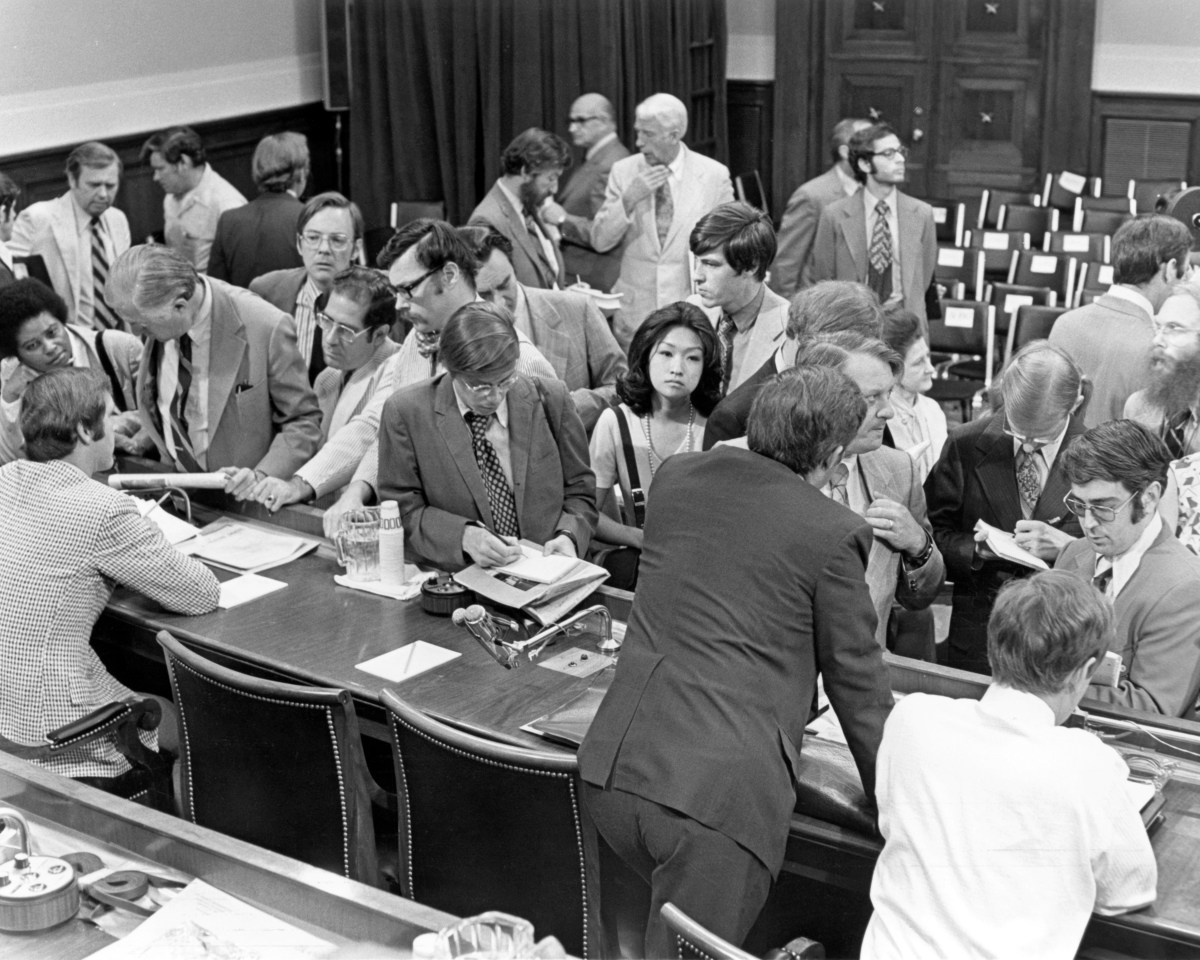When Connie Chung first began working in broadcast journalism in the early 1970s, she was often the only woman and the only Asian American in the room. To fit in this “boys club,” Chung felt compelled to adopt a “ballsy,” aggressive persona. What helped her career most was her hard work and ingrained ambition.
“Anyone trying to come up in journalism, in television news, the best thing to do is just go ahead and work hard,” Chung said. “Don’t worry about your critics. Don’t worry about people who don’t have faith in you. Just do a good job, be brave and plow forward.”
Chung, who recently published a memoir, sat down with NBCU Academy to share how she learned to be assertive and what she feels about her legacy as an Asian American pioneer in TV news.
In college, you were first a biology major and then wanted to be an accountant. What got you interested in journalism?
One summer between my junior year and senior year, I worked for a congressman on Capitol Hill as an intern. I was struck by watching the reporters asking impertinent questions of members of Congress. I was so intoxicated with news and the whole idea of reporting that I decided to go into journalism. That summer did it — television journalist became my thing.
Who was your role model in journalism?
[Former CBS News anchor] Walter Cronkite. My parents and I, along with the rest of my family, would sit down to watch Walter Cronkite on the “CBS Evening News” every night. He was trustworthy, confident, objective, he was known as “Uncle Walter,” and we believed him. He told us the truth.
When I got into news, all I wanted to do was to follow in Walter Cronkite’s footsteps. There were no women doing hard-news anchoring. I thought, “Walter Cronkite is going to be the man that I will model myself after.”
You say student government helped you discover your boldness, drive and ambition. Where did this drive come from?
One of the reasons why I became so driven in my career was that my parents never had a son. They had 10 children — I was the 10th, [the only one] born in the United States; they had nine in China. Five of them were infants when they died, three were boys. My parents never had a son that they so coveted and in Chinese tradition is so desired.
My father was indicating that maybe I could be the son he never had. I had been in the news business for a few years, and he wrote me in a letter, “Maybe someday you can carry on the name Chung and chisel it in history.” I was so into filial piety, I went after the idea of making the name Chung go down in history.

Related to this, you tried to act like “one of the guys” when you started your broadcast career. Did that require you to not act like yourself?
When I first got into news, all I saw around me were men. The entire newsroom was filled with men, maybe one woman, one Black man. My competitors as reporters were men, the people I was covering in Washington — the White House, Pentagon, State Department — were all men.
I decided that I may not look like a guy, but I wanted to be part of the boys’ club. So I talked like them, I walked like them, I spoke like them. I had a terrible potty mouth, which I’m not proud of. It was a peculiar type of armor that I put on, but I was still myself. It’s not that I changed myself, I took on a persona that I thought was ballsy to survive in an all-male environment.
I had a hard time saying no to authority, including my parents. All that filial piety that I abided by in terms of being Chinese, being Asian, I carried through to male management. When male management would tell me to do something, it was very hard for me to say no. Women had a hard time saying no, fearing we might be uncooperative or called the B-word.
It was a fine line to walk on, doing those grunt stories that I didn’t like, but also trying to prove myself and cover hard news stories too.
What advice do you have for early-career journalists?
Anyone trying to come up in journalism, television news, the best thing to do is just go ahead. Don’t worry about your critics, people who don’t have faith in you. Just do a good job, be brave and plow forward.
Take your work seriously and don’t take yourself seriously. If you sit around worrying, you can’t do a good job. And the best way to distinguish yourself is to find stories that nobody else would cover, that nobody else knows. That’s just plain good reporting.
You were the first Asian American and the second woman to be a nightly news anchor at a major network. Did you feel at the time that you were making history?
I didn’t think I was breaking ground or paving the way. I was just putting one foot in front of the other and trying to survive. The television news business is pretty brutal. I was trying to get ahead and trying to prove myself every day. I didn’t know what was going on the other side of the camera — I had no idea if I was acceptable, if anybody was watching. Frankly, I didn’t know.
So all of these accolades I am clueless about. My husband, Maury Povich, has always said to me, “You’re the Jackie Robinson of news.” And I would say, “No, I’m not,” but I’m now kind of able to get my arms around that idea.















